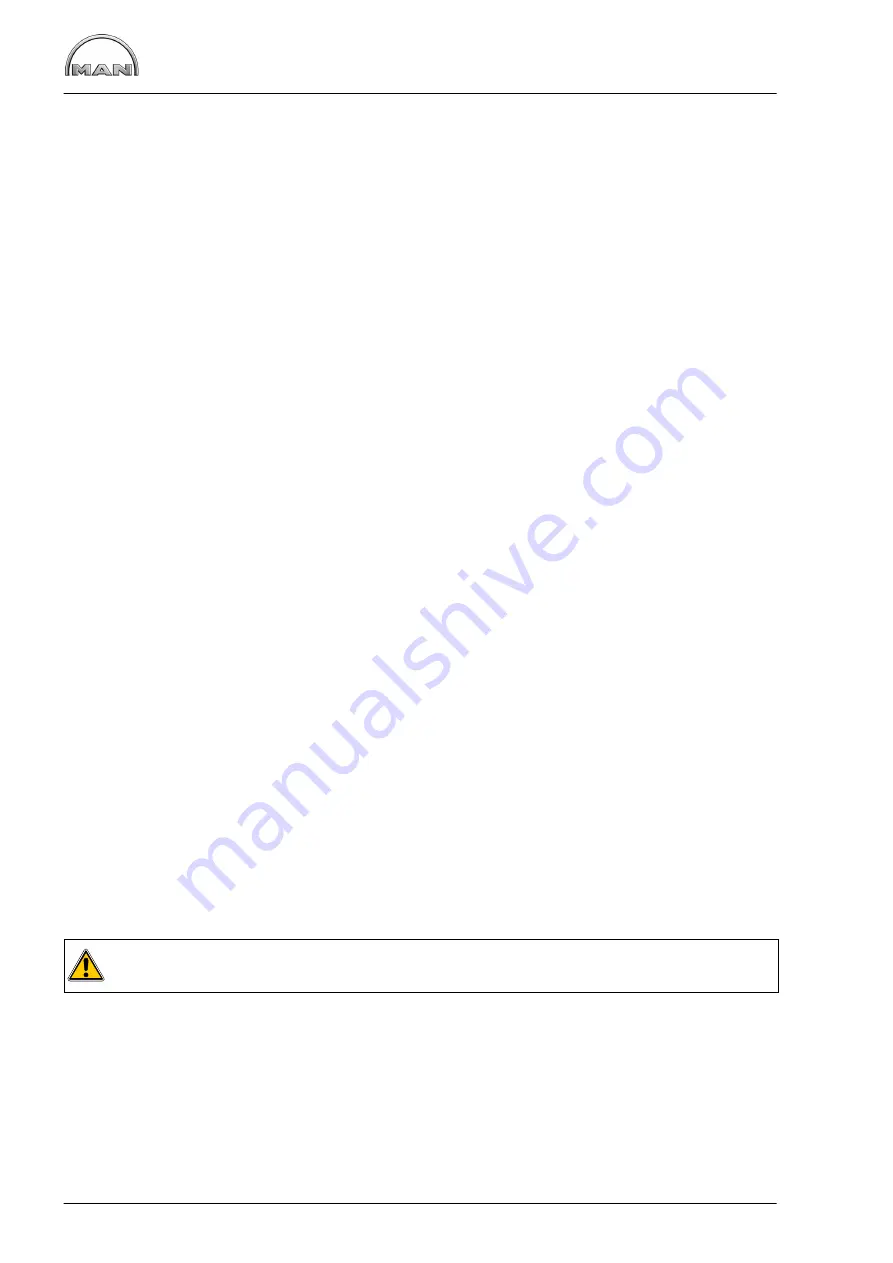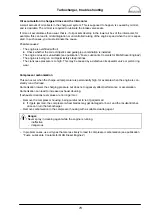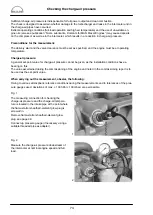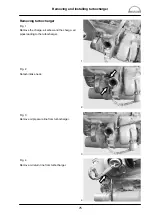
Turbocharger, trouble shooting
72
Before removing the turbocharger carry out the following checks
Turbochargers are frequently exchanged if the oil consumption is too high, the output too low or the intake
and / or exhaust gas noises appear to be abnormal.
Subsequent inspections by the manufacturer of the supposedly defective parts frequently prove the turbo-
chargers to be in order.
To ensure that only defective turbochargers will be exchanged in future, the following checks are to be car-
ried out beforehand:
If the oil consumption is too high
−
Check air filter for contamination
−
ensure that the engine room ventilation is adequate
−
check intake pipe for cross section reduction (owing e.g. to damage, contamination)
These causes lead to higher oil consumption owing to the increased vacuum on the intake side of the com-
pressor.
−
Check outside of turbocharger for oil traces
Oil consumption caused directly by turbocharger depends on the bearing wear and results in relatively early
mechanical damage.
If engine performance is not satisfactory
Correct adjustment of the
−
delivery start
−
valve clearance
−
speed adjustment (to full load stop)
In addition, the following are to be checked:
−
the compression
−
the air filters for contamination
−
the charge-air pressure
−
intake system for reduction of cross-section and for leaks
−
exhaust system for damage and leaks
If you do not detect any possible cause in the above checks, check the turbocharger for:
−
Carbonization in the turbine area, which impairs the movement of the wheel assembly
(can be eliminated by axial movement)
−
Dirt in the compressor area
−
Damage caused by foreign objects
−
Scraping of the turbine rotor on the housing
If a considerable amount of dirt has accumulated, clean the compressor end and check the bearing
clearance.
Caution:
Do not damage the aluminium compressor wheel.
When there is unusual intake or exhaust noise
−
Check the intake and exhaust system in the area of the charger group.
Defective gaskets can lead you to think the turbocharger is defective. Replace them.
−
If there are still unusual noises, check the bearing clearance.
Turbochargers in good working order do not make any excessive noise.
Summary of Contents for D 2842 LE 620
Page 1: ......
Page 2: ......
Page 20: ...Engine views D 2842 LE 620 18 7 1 2 4 3 5 6 7 1 2 4 11 9 10 8...
Page 136: ...134...
Page 137: ...135 Service Data...
Page 163: ...161 Special tools...
Page 164: ...Special tools 162 1 2 3 4 5 6 7 8 9 10 11 11 1 11 2 12 12 1 12 2 13 14...
Page 166: ...Special tools 164 15 1 15 2 15 3 15 4 15 5 1 2 7 15 6 3 4 5 6 15 7...
Page 170: ...Special tools 168 3 1 4 29 5 6 2 29 30 31 32 33 34 35...
Page 172: ...Special tools 170 36 37 38 39 42 40 41 44 2 44 1 44 43 1 43 2 43 3 43 45 46...
Page 178: ...176...
Page 179: ......
Page 180: ......
















































